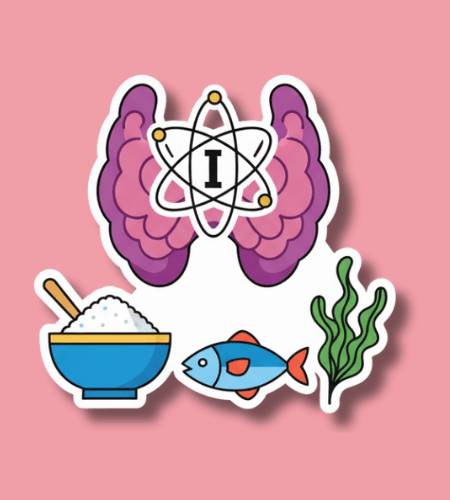Every year on 21 October, we observe Global Iodine Deficiency Disorders Prevention Day, a day dedicated to raising awareness about the importance of iodine in our diets and the serious health problems that arise when it’s missing.
Table of Contents
History of Global Iodine Deficiency Disorders Prevention Day
The roots of this observance go far back—historical medical texts in ancient China noted that eating seaweed or burnt sea sponge helped reduce goitre, even though iodine itself was not yet understood. In 1811, the French chemist Bernard Courtois discovered iodine as a distinct element while processing seaweed ash.
The modern push to prevent iodine deficiency disorders (IDD) intensified during the 20th century. At the World Summit for Children in 1990, world leaders pledged to eliminate IDD by the year 2000. Over time, awareness efforts grew and the date of 21 October became associated with the challenge of ensuring adequate iodine intake globally.
Why is Global Iodine Deficiency Disorders Prevention Day important?
I often think how something as small and hidden as a trace mineral can tip the balance between healthy development and lifelong setbacks. Iodine is essential to the hormones produced by the thyroid gland—which influence growth, metabolism, brain development and more. When the diet lacks iodine, the consequences ripple through entire lives and communities.
Beyond the individual tragedy of preventable disabilities, there’s a social and economic dimension: when children’s learning is impaired because of iodine deficiency, when mothers face increased risk of miscarriage or stillbirth, the cost is not just medical but societal. Observing this day reminds us that health is not only about visible treatments—it’s also about what’s missing and how easily that gap can be closed.
Here are some human‑centred reflections on its importance:
- It underscores that prevention is often simpler and less dramatic than treatment—but still vital
- It reminds us that even a low‑profile nutrient like iodine defines the boundary between full potential and compromise
- It shows how public‑health policy (like salt iodisation) can reach millions and shift outcomes
- It invites us to remember that vulnerable groups—pregnant women, infants, remote populations—often bear the greatest burden
- It connects the everyday act of choosing iodised salt or iodine‑rich food with the much larger mission of global nourishment
How to Observe Global Iodine Deficiency Disorders Prevention Day
If I were talking to a friend about what to do on 21 October, I’d say: why not make this a personal reflection and small action day? You don’t need major fanfare—just friendly, realistic steps. Start by checking if your household uses iodised salt, or by sharing a simple fact about iodine with someone. If you’re involved in a school, workplace or community group, you could organise a mini‑talk about thyroid health or hold a recipe‑swap featuring iodine‑rich foods.
And beyond that, keep it embedded in daily lives: make iodine awareness part of how you shop, cook, teach children, or support local health efforts. It becomes meaningful when it’s not just a campaign but a small change—choosing the salt with iodine, adding a fish or sea‑vegetable dish to a menu, educating someone about why the neck swelling (goitre) in some places is not just aesthetic but a sign of deficiency.
Here are some simple ideas:
- Check the salt you use at home and switch to iodised salt if it isn’t already
- Cook a meal featuring seafood, dairy or sea‑vegetables and talk about why they matter for iodine
- Share a post on social media or with friends about the importance of iodine in human health
- Volunteer or donate to programmes or NGOs working in regions still severely affected by IDD
- Invite a local health professional to give a short talk at your community group or school about iodine and thyroid health
Global Iodine Deficiency Disorders Prevention Day Dates Table
| Year | Date | Day |
|---|---|---|
| 2026 | October 21 | Wednesday |
| 2027 | October 21 | Thursday |
| 2028 | October 21 | Saturday |
| 2029 | October 21 | Sunday |
| 2030 | October 21 | Monday |
Subscribe to our newsletter and never miss a holiday again!

